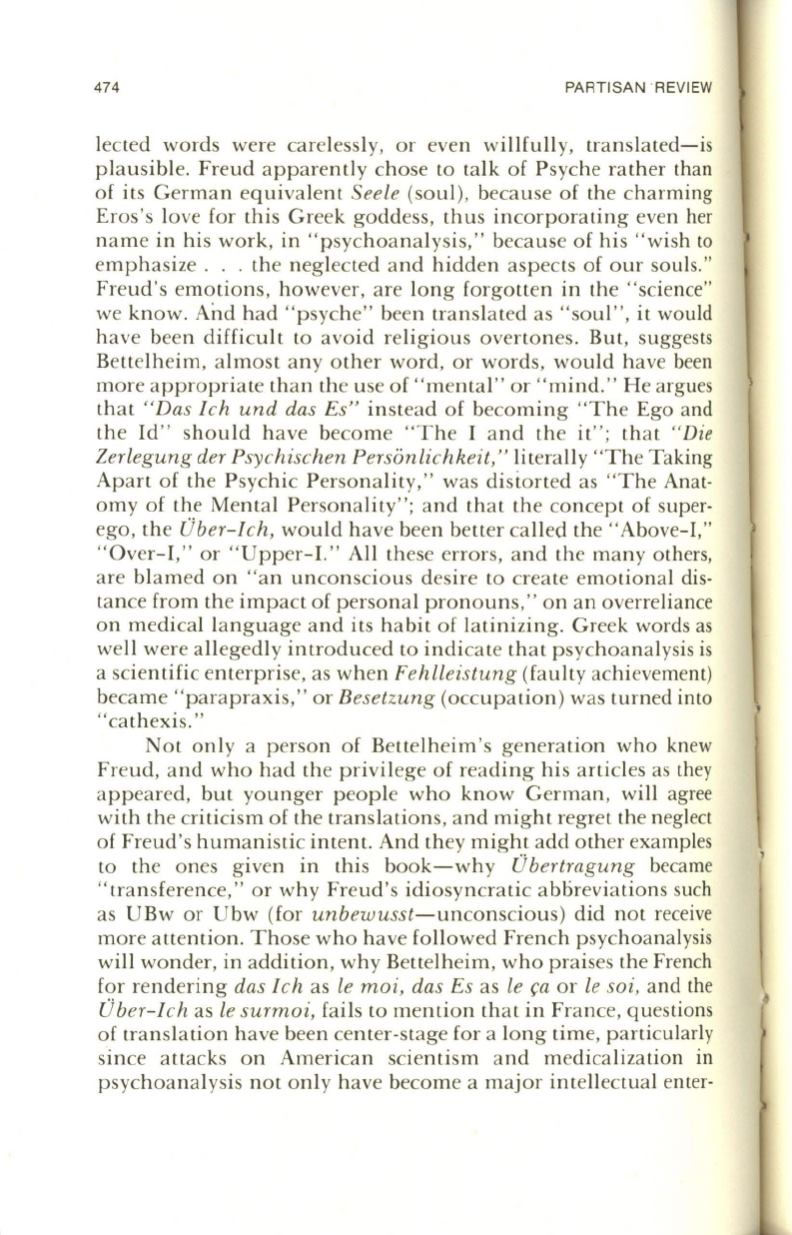
474
PARTISAN REVIEW
lected words were carelessly, or even willfully, translated-is
plausible. Freud apparently chose
to
talk of Psyche rather than
of its German equivalent
Seele
(soul), because of the charming
Eros's love for this Greek goddess, thus incorporating even her
name in his work, in "psychoanalysis," because of his "wish to
emphasize ... the neglected and hidden aspects of our souls."
Freud's emotions, however, are long forgotten in the "science"
we know. And had "psyche" been translated as "soul", it would
have been difficult to avoid religious overtones. But, suggests
Bettelheim, almost any other word, or words, would have been
more appropriate than the use of "mental" or "mind." He argues
that
"Das Ich und das Es"
instead of becoming "The Ego and
the Id" should have become "The I and the it"; that
"Die
Zerlegung der Psychischen Personlichkeit,"
literally "The Taking
Apart of the Psychic Personality," was distorted as "The Anat–
omy of the Mental Personality"; and that the concept of super–
ego, the
Uber-Ich,
would have been better called the "Above-I,"
"Over-I," or "Upper-I." All these errors, and the many others,
are blamed on "an unconscious desire
to
create emotional dis–
tance from the impact of personal pronouns," on an overreliance
on medical language and its habit of latinizing. Greek words as
well were allegedly introduced to indicate that psychoanalysis is
a scientific enterprise, as when
Fehlleistung
(faulty achievement)
became "parapraxis," or
Besetzung
(occupation) was turned into
"cathexis. "
Not only a person of Bettelheim's generation who knew
Freud, and who had the privilege of reading his articles as they
appeared, but younger people who know German, will agree
with the criticism of the translations, and might regret the neglect
of Freud's humanistic intent. And they might add other examples
to the ones given in this book-why
Ubertragung
became
"transference," or why Freud's idiosyncratic abbreviations such
as UBw or Ubw (for
unbewusst-unconscious)
did not receive
more attention. Those who have followed French psychoanalysis
will wonder, in addition, why Bettelheim, who praises the French
for rendering
das Ich
as
le moi, das Es
as
le {:a
or
le soi,
and the
Uber-Ich
as
le surmoi,
fails to mention that in France, questions
of translation have been center-stage for a long time, particularly
since attacks on American scientism and medicalization in
psychoanalysis not only have become a major intellectual enter-


